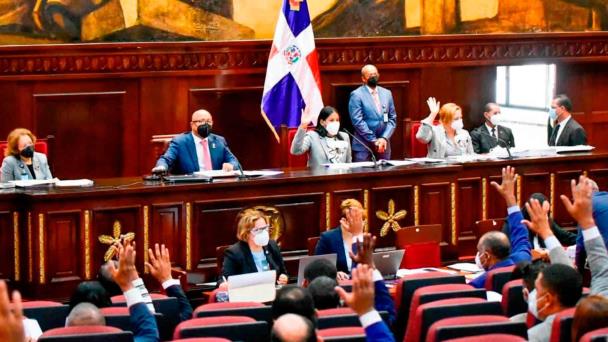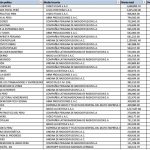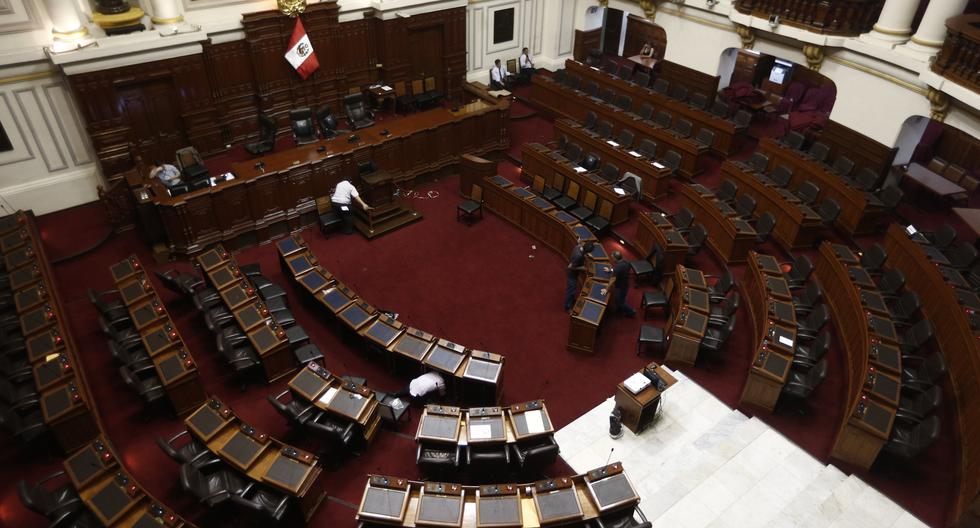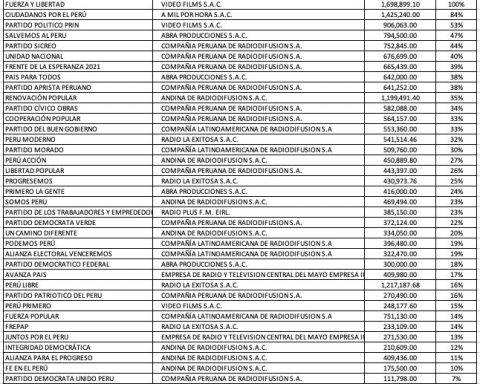The Senate left in the hands of the Chamber of Deputies the bill of Domain Extinction after it was approved in two readings by senators this week.
The regulations will arrive this Tuesday to the deputies where they will find the refusal of the People’s Force and the Dominican Liberation Party (PLD), to vote in favor of it, considering that it is an organic law and not an ordinary one.
The piece for the civil confiscation of illicit assets has been the point of great discussion both in the National Congress and in the public hearings carried out by the commission.
The spokesman for the deputies of the PLDGustavo Sánchez, indicated that this organization has repeatedly warned the ruling Modern Revolutionary Party (PRM), that, if they had really been interested in the approval of the law of Domain Extinction “They would have recognized that this bill is a special bill because it affects fundamental rights.”
The discussions of recent weeks have revolved around this prerogative of whether the law is ordinary or organic, before which strong confrontations have arisen on this matter.
“The PRM does not want the law, because if it wanted it, it would focus on recognizing the form of presentation of the law, we in the Chamber of Deputies have the same narrative, we are in favor of the Dominican Republic having a law of Domain Extinctionbut that it complies with the constitutional precepts,” Sánchez said.
He said that there are some elements of the project with which the PLD does not agree, but that one of them is about the method of voting, for which he assured “that the PRM He doesn’t want the bill to become law.”
“We are going to vote no on the basis of whether the president of the Chamber of Deputies submits it with the same procedure as the Senate, because we will also have the same behavior because that is basically a proposal that has come out of the PLDSanchez said.
While Rubén Maldonado, spokesman in the Chamber of Deputies of the party People’s Force He said that because the treatment given to the law is as ordinary and not as organic, his party will not vote in favor of the Domain Extinction because it has “unconstitutional vices” that should have been fixed.
He indicated that with this law the same thing can happen as with the law on political parties, “that the constitutional law has annulled several articles.”
He reiterated that the PRM of not “wanting that law and that’s why they approved it” as ordinary.
The ruling party: “the parties must be honest”
The deputy of PRMShoraya Suarez said that the political parties must be honest about “whether we really and effectively want a law of Domain Extinction”, said that previously the same discussion was made about whether it was organic or ordinary.
“What I really believe is that they do not want law, I understand that he who owes nothing, fears nothing. It will be known in the Chamber of Deputies and has the approval of the PRM and it will happen, the courts will then be in charge of deciding, because that is the function of the courts, ours is to create laws and do laws that benefit the people”, said the deputy.

Senate legal adviser
Damián Olivares, legal advisor to the Senate, when asked if there is a possibility that the law of Domain Extinction be declared unconstitutional in the Constitutional Court said that it cannot be predicted because “in law nothing is arithmetic” and “much less an exact science” for which it is not possible to know what the majority criteria for that will be.
He said that the norm is a constitutional mandate and that it is not a criminal law, but a singular, special and patrimonial law that organizes the procedure and jurisdictional process for the restitution “of the effective enjoyment of the patrimonial rights that are detected by people who have achieved it illicit manner”.
He explained that the civil code in articles 711 and 712 in the third book of that code says: “of the different ways of acquiring property”, which can be through succession or inheritance, by donations inter vivos or by obligations. (purchase and sale contracts, swaps, among others) and by acquisitive prescription or usucapion.
“This refers us to the fact that the precarious possession of assets originating in ways other than succession, donation or purchase, exchange, but rather apparently could have some modality, but which in themselves are originated by drug trafficking, drug trafficking, people, pimping, environmental depredation or damage to public property, understand any of the forms of corruption, those capitals and assets that those people have in their domain have a vocation to be returned to society, “he explained.
The jurist explained that it is not going to be judged, but to determine the extinction of that possession or detention of the property “here you will not see coercive measures for people, there is no prison and nobody is going to sit on a bench”, He said that this law is a kind of civil and patrimonial lawsuit.
“It is not about guilt, what is going to be discussed is whether that control over assets originating from illicit acts is a fact that must be previously established and accredited, if the assets are going to be acted upon. It is not a personal action and by way of consequence we are not talking about the presumption of innocence or questioning the legal status of innocence, on the contrary, it is a subsidiary mechanism to any other mechanisms of persecution of people,” Olivares stressed.

















